
Bipalium is a genus of large predatory land planarians. They are often loosely called "hammerhead worms" or "broadhead planarians" because of the distinctive shape of their head region. Land planarians are unique in that they possess a "creeping sole", a highly ciliated region on the ventral epidermis that helps them to creep over the substrate. Several species are considered as invasive to the United States and to Europe. Some studies have begun the investigation of the evolutionary ecology of these invasive planarians.

Platydemus is a genus of large predatory land planarians in the tribe Rhynchodemini.

Dendrocoelidae is a family of freshwater tricladida flatworms that has a holarctic distribution.

Microplana is a genus of land planarians found in Europe and Africa.
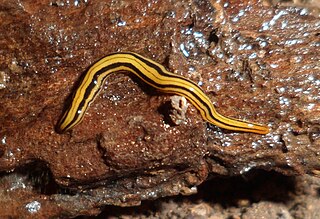
Luteostriata is a genus of land planarians from Brazil characterized by a yellow body with dark longitudinal stripes.

Obama is a genus of land planarians from South America. It contains several species adapted to human-disturbed environments, including the only invasive land planarian native to the Neotropical realm, Obama nungara, which has been accidentally introduced in Europe.
Gigantea is a genus of land planarians from the Neotropical realm.
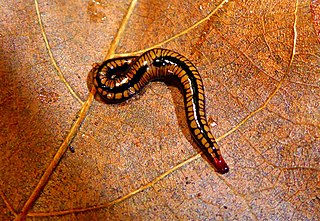
Othelosoma is a genus of land planarians found in Africa and India.
Gusana is a genus of land planarians found in Chile.

Kontikia is a genus of land planarians native from islands in the Indo-Pacific region, but several species have been introduced elsewhere.
Tasmanoplana is a genus of land planarians from Australia.
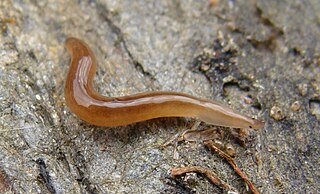
Rhynchodemus is a genus of land planarians in the tribe Rhynchodemini.
Pelmatoplaninini is a tribe of land planarians in the subfamily Rhynchodeminae.

Humbertium is a genus of land planarians of the subfamily Bipaliinae.

Diversibipalium is a genus of land planarians of the subfamily Bipaliinae. It was erected to include species lacking sufficient morphological information to allow them to be classified in the appropriate genus.
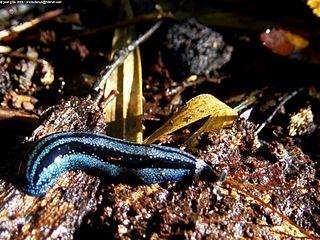
Pseudogeoplana is a genus of land planarians of the subfamily Geoplaninae. It was erected to include species lacking sufficient morphological information to allow them to be classified in the appropriate genus.
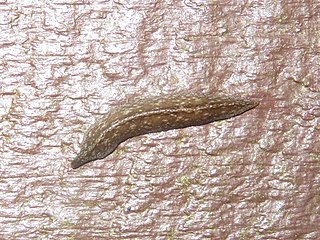
Australopacifica is a genus of land planarians of the tribe Caenoplanini. It was erected to include species lacking sufficient morphological information to allow them to be classified in the appropriate genus.
Statomicroplana is a genus of land planarians of the subfamily Microplaninae. It was erected to include species lacking sufficient morphological information to allow them to be classified in the appropriate genus.
Pelmatoplana is a genus of land planarians in the tribe Pelmatoplanini.
Charles Alfred Paul Marais de Beauchamp, 5th Baron Soye, was a French zoologist.












